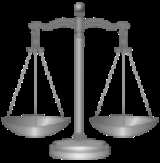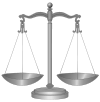
Pension Benefit Systems Partnership
Encyclopedia
| T 931/95 | ||
|---|---|---|
 Board of Appeal of the European Patent Office |
||
| Issued September 8, 2000 | ||
| Board composition | ||
|
||
| Headwords | ||
|
||
T 931/95, commonly known as Pension Benefit Systems Partnership, is a decision of a Technical Board of Appeal of the European Patent Office
Appeal procedure before the European Patent Office
Decisions of the first instances of the European Patent Office can be appealed, i.e. challenged, before the Boards of Appeal of the EPO, in a judicial procedure , as opposed to an administrative procedure. These boards act as the final instances in the granting and opposition procedures before the...
(EPO), issued on September 8, 2000. At the time, it was a landmark decision for interpreting Article 52(1) and (2) of the European Patent Convention
European Patent Convention
The Convention on the Grant of European Patents of 5 October 1973, commonly known as the European Patent Convention , is a multilateral treaty instituting the European Patent Organisation and providing an autonomous legal system according to which European patents are granted...
(EPC) but has now largely been superseded by the decisions in T 641/00
T 641/00
T 641/00, also known as Two identities/COMVIK, is a decision of a Technical Board of Appeal of the European Patent Office , issued on September 26, 2002. It is a landmark decision regarding the patentable subject matter requirement and inventive step under the European Patent Convention...
(Comvik, Two identities) and T 258/03
T 258/03
T 258/03, also known as Auction Method/Hitachi, is a decision of a Technical Board of Appeal of the European Patent Office , issued on April 21, 2004. It is a landmark decision for interpreting Article 52 and of the European Patent Convention which built on the principles suggested by the same...
(Hitachi, Auction Method).
It stated that having a technical character is an implicit requirement of the EPC to be met by an invention
Invention
An invention is a novel composition, device, or process. An invention may be derived from a pre-existing model or idea, or it could be independently conceived, in which case it may be a radical breakthrough. In addition, there is cultural invention, which is an innovative set of useful social...
in order to be patentable
Patentability
Within the context of a national or multilateral body of law, an invention is patentable if it meets the relevant legal conditions to be granted a patent...
. In other words, the technical character requirement is inherent to the notion "invention" in Article 52(1). It also confirmed that methods only involving economic concepts and practices of doing business, or methods for doing business
Business method patent
Business method patents are a class of patents which disclose and claim new methods of doing business. This includes new types of e-commerce, insurance, banking, tax compliance etc. Business method patents are a relatively new species of patent and there have been several reviews investigating the...
as such, are not inventions within the meaning of Article 52(1) EPC, and are therefore not patentable.
Back in 2001, decision T 931/95, along with decision T 769/92 ("Sohei case"), were considered the most relevant cases from the EPO Boards of Appeal regarding business methods.
Decision
The Board of Appeal first drew a distinction between a method for doing business as such, excluded under Article 52(2)(c) EPC , and a method for doing business having a technical character. The mere fact that data processing and computing means, i.e. technical means, are recited in a method claimClaim (patent)
Patent claims are the part of a patent or patent application that defines the scope of protection granted by the patent. The claims define, in technical terms, the extent of the protection conferred by a patent, or the protection sought in a patent application...
does not necessarily confer a technical character to the claimed method. In other words, "technical means for a purely nontechnical purpose and/or for processing purely nontechnical information does not necessarily confer technical character".
In contrast, regarding an apparatus claim, the Board stated that
- "a computer system suitably programmed for use in a particular field, even if that is the field of business and economy, has the character of a concrete apparatus in the sense of a physical entity, man-made for a utilitarian purpose and is thus an invention within the meaning of Article 52(1) EPC."
This distinction of treatment between methods and apparatuses is justified by the mention of "method" but not apparatus in the exclusion of Art. 52(2)(c) EPC. The recent decision T 258/03
T 258/03
T 258/03, also known as Auction Method/Hitachi, is a decision of a Technical Board of Appeal of the European Patent Office , issued on April 21, 2004. It is a landmark decision for interpreting Article 52 and of the European Patent Convention which built on the principles suggested by the same...
does not make this distinction between method and apparatus claims anymore.
Regarding the fact that the meaning of the term "technical" or "technical character" may not be particularly clear, the Board stated this also applied to the term "invention". "(...) [T]he fact that the exact meaning of a term may be disputed does in itself not necessarily constitute a good reason for not using that term as a criterion, certainly not in the absence of a better term: case law may clarify the issue."
The Board also rejected the so-called "contribution approach", which consists in distinguishing between "new features" of an invention and features of that invention which are known from the prior art when examining whether the invention concerned may be considered to be an invention within the meaning of Art. 52(1) EPC.
Although the claim under examination was found to meet Art. 52 EPC requirement, the claim was eventually considered to lack inventive step
Inventive step under the European Patent Convention
Under the European Patent Convention , European patents shall be granted for inventions which inter alia involve an inventive step. The central legal provision explaining what this means, i.e. the central legal provision relating to the inventive step under the EPC, is...
. The improvement put forward by the invention belonged to the field of economy and could not therefore contribute to inventive step.
See also
- Software patents under the European Patent ConventionSoftware patents under the European Patent ConventionThe patentability of software, computer programs and computer-implemented inventions under the European Patent Convention is the extent to which subject matter in these fields is patentable under the Convention on the Grant of European Patents of October 5, 1973...
- List of decisions of the EPO Boards of Appeal relating to Article 52(2) and (3) EPC
External links
- Decision T 931/95 on the "EPO boards of appeal decisions" section of the EPO web site

